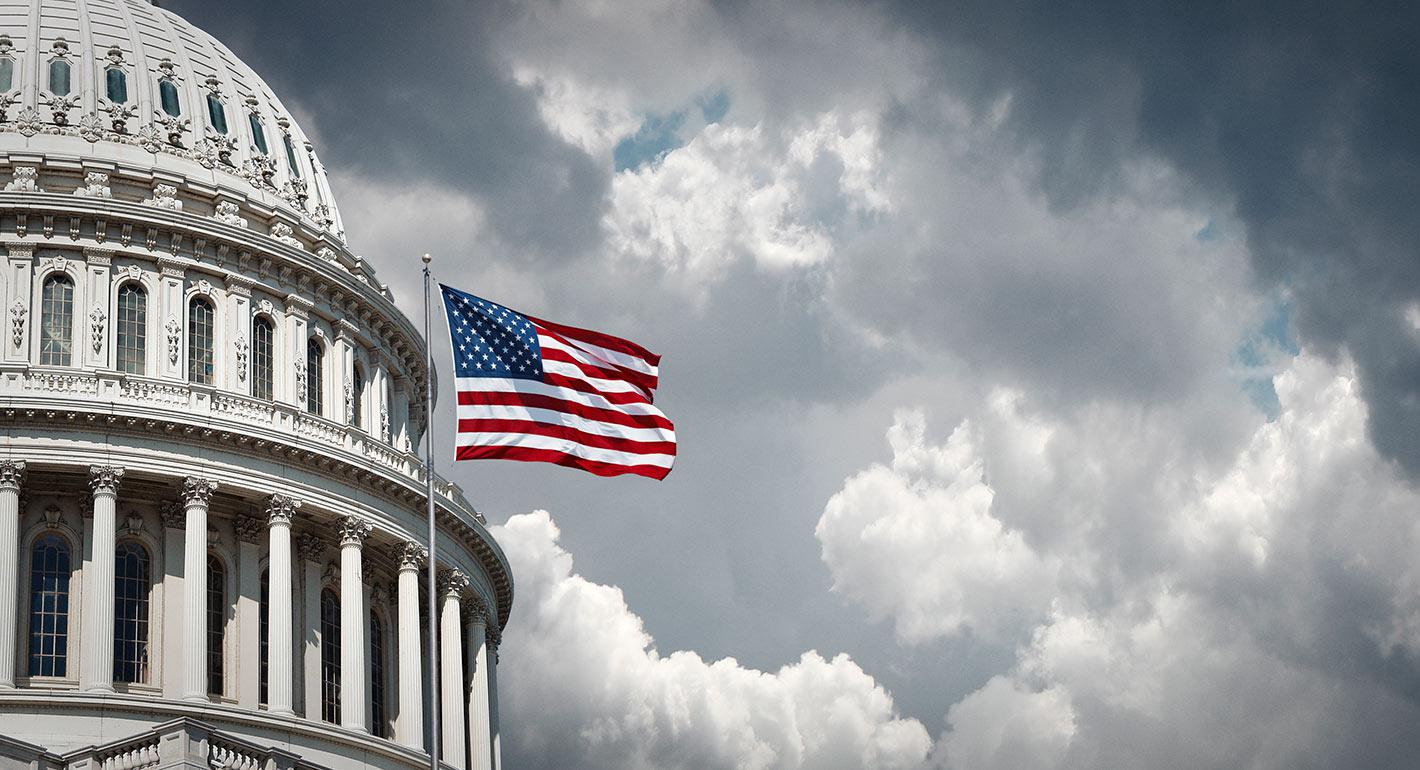Ashley J. Tellis
{
"authors": [
"Ashley J. Tellis"
],
"type": "other",
"centerAffiliationAll": "",
"centers": [
"Carnegie Endowment for International Peace"
],
"collections": [
"Coronavirus"
],
"englishNewsletterAll": "",
"nonEnglishNewsletterAll": "",
"primaryCenter": "Carnegie Endowment for International Peace",
"programAffiliation": "",
"programs": [],
"projects": [],
"regions": [
"North America",
"United States",
"East Asia",
"China"
],
"topics": [
"Foreign Policy"
]
}
Source: Getty
COVID-19 Knocks on American Hegemony
The coronavirus pandemic threatens U.S. hegemony in new, deadly ways.
Source: National Bureau of Asian Research
After almost two decades of conflicted hesitancy, the United States finally acknowledged that it is involved in a long-term strategic competition with China. This rivalry, almost by definition, is not merely a wrangle between two major states. Rather, it involves a struggle for dominance in the international system, even if China as the rising power disavows any such ambition. China’s very ascendancy—if sustained—could over time threaten the U.S. hegemony that has been in place since the end of World War II. It is this reality of unequal growth—which has nourished China’s expanding influence and military capabilities—that lies at the root of the evolving rivalry.
Although the term sometimes has unsettling connotations, the United States is a genuine hegemon, understood in the original Greek sense as a leader in the competitive international system. This hegemony derives from the fact that the United States is the world’s single most powerful state. First, it remains the largest economy in real terms, a foundation that underwrites its capacity to project military power globally in ways unmatched by any peers. Second, it possesses a sufficiently effective state that presides over a remarkably productive society. And, third, in partnership with strong allies in North America, Western Europe, East Asia, and Oceania, who share both values and interests, the United States has created an international order that buttresses its primacy materially, institutionally, and ideationally, thereby allowing it to advance diverse interests while economizing on its use of force. Although these foundations have been stressed in recent times, the Covid-19 pandemic now threatens them in deadly ways.
This piece was originally published by the National Bureau of Asian Research.
About the Author
Former Senior Fellow
Ashley J. Tellis was a senior fellow at the Carnegie Endowment for International Peace.
- Multipolar Dreams, Bipolar Realities: India’s Great Power FuturePaper
- India Sees Opportunity in Trump’s Global Turbulence. That Could Backfire.Commentary
Ashley J. Tellis
Recent Work
Carnegie does not take institutional positions on public policy issues; the views represented herein are those of the author(s) and do not necessarily reflect the views of Carnegie, its staff, or its trustees.
More Work from Carnegie Endowment for International Peace
- Iran Is Pushing Its Neighbors Toward the United StatesCommentary
Tehran’s attacks are reshaping the security situation in the Middle East—and forcing the region’s clock to tick backward once again.
Amr Hamzawy
- The Gulf Monarchies Are Caught Between Iran’s Desperation and the U.S.’s RecklessnessCommentary
Only collective security can protect fragile economic models.
Andrew Leber
- Europe on Iran: Gone with the WindCommentary
Europe’s reaction to the war in Iran has been disunited and meek, a far cry from its previously leading role in diplomacy with Tehran. To avoid being condemned to the sidelines while escalation continues, Brussels needs to stand up for international law.
Pierre Vimont
- Governing Aging Economies: South Korea and the Politics of Care, Safety, and WorkPaper
South Korea’s rapid demographic transition previews governance challenges many advanced and middle-income economies will face. This paper argues that aging is not only a care issue but a structural governance challenge—reshaping welfare, productivity, and fiscal sustainability, and reorganizing responsibilities across the state, private sector, and society.
Darcie Draudt-Véjares
- Lessons Learned from the Biden Administration’s Initial Efforts on Climate MigrationArticle
In 2021, the U.S. government began to consider how to address climate migration. The outcomes of that process offer useful takeaways for other governments.
Jennifer DeCesaro









